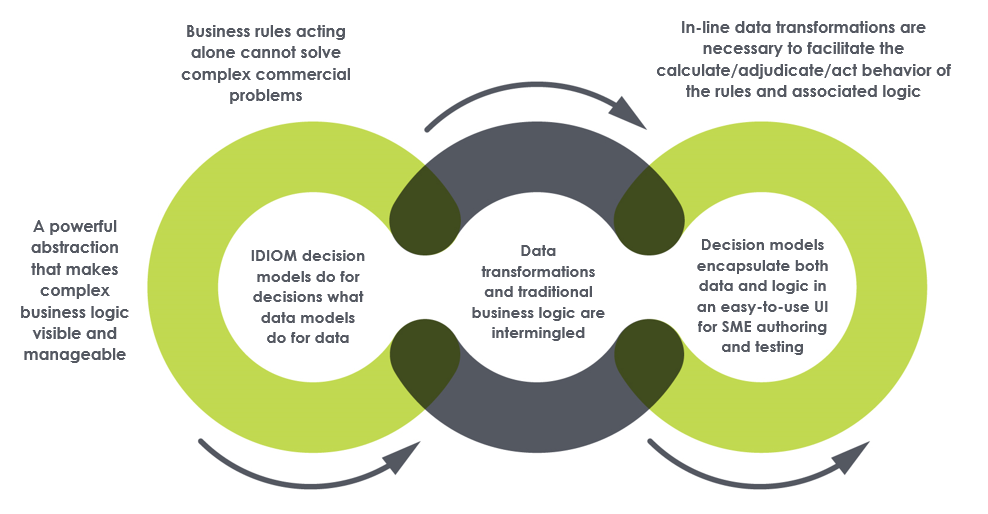Decisions and Decision Models
Decision Model: An ordered assembly of decisions that creates new and proprietary information to further the mission of the business.

Decision: A single definitive datum that is derived by applying business knowledge to relevant data for the purpose of positively supporting or directing the activity of the business.
The desire or need to regulate and control system responses to give a zero-touch process is ensuring that decisioning is a core function of modern systems.
In these systems decisioning also drives the discovery of data and its relevance to the business - the need for the decision drives the need for the data. And because the decision outcome predicates the process response, it also implicitly drives the process definition.
Businesses do not make a decision merely because they have available data, nor do they act without making a decision. Decisions are clearly identifiable as the heart of any automated system response.
If decisions are core drivers of the data and process elements of a system, they are also drivers of other decisions. For instance, the decision to accept insurance business depends in turn on decisions regarding the customer, the insured risk, price, underwriting terms, etc. Each decision can also depend on other decisions until a tree structured model of decisions is formed - the decision model. IDIOM’s decision models do for decisions what data models do for data – a powerful abstraction that makes the underlying complexity visible and manageable.
Our experience has shown that decisions are the fastest and easiest of the first class system design elements (i.e. of data, process, decision) to discover and model. The decision model is the core of business knowledge. The decision model then provides a fast-track to the discovery and modelling of data and processes, giving rise to a 'decision centric' system.


